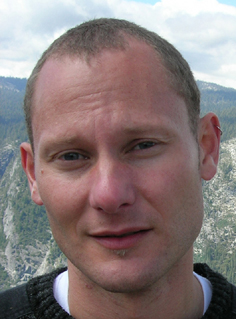Dr. M. Albert Basson
M. Albert Basson, Ph.D. is Senior Lecturer, Craniofacial Development and Stem Cell Biology, King’s College London.
Albert earned his Ph.D. from the University of Cambridge in 1996. After post-doctoral training with Dr. Rose Zamoyska in Molecular Immunology at the MRC National Institute for Medical Research in London (1996–2001), he was awarded a Wellcome Trust International Prize Travelling Fellowship to initiate studies into the regulation of signaling pathways during embryonic development, first at Mount Sinai School of Medicine, New York City (2001–2002) with Professor Jon Licht and then at the MRC Centre for Developmental Neurobiology, King’s College London (2003) with Professor Ivor Mason.
He spent a further two years (2004–2006) at the University of California, San Francisco as a visiting post-doctoral scientist in Professor Gail Martin’s laboratory before taking up a position as Lecturer in the Department of Craniofacial Development. His research group is affiliated with the MRC Centre for Developmental Neurobiology.
Albert is interested in understanding how signaling pathways are regulated during development and how deregulated signaling results in birth defects and cellular malfunction. He is primarily interested in the Fibroblast Growth Factor signaling pathway and negative feedback regulators of this pathway, the Sprouty genes.
His current research focuses on the role of these Sprouty genes in the development of the pharyngeal apparatus, the cerebellum, and adult neural stem cells. The pharyngeal apparatus is a transient structure in the embryo, which controls the development of several important organs and structures such as the aortic arch, thymus and parathyroid glands, cranial sensory ganglia and ear. These organs are affected in developmental syndromes such as DiGeorge and CHARGE and his studies are aimed at providing a better understanding of the aetiology of these conditions.
The cerebellum is an important control centre for movement and coordination. Albert has found that the level of FGF signaling has to be tightly controlled to ensure normal development of the cerebellum. He is dissecting the intricacies of intercellular signaling during cerebellar development and his aim is to provide a better understanding of the developmental defects that disrupt cerebellar development.
In collaboration with Dr. Andrew Brack’s group (Harvard University) Albert recently found that Sprouty1 regulates the maintenance of the adult muscle stem cell pool. He is investigating the role of these genes in the maintenance and function of adult neural stem cells in young and aging mice, with the aim of understanding the roles of these genes in maintaining neurogenesis throughout life.
His papers include MicroRNA-21 contributes to myocardial disease by stimulating MAP kinase signalling in fibroblasts, Specific regions within the embryonic midbrain and cerebellum require different levels of FGF signaling during development, Characterization of a Dchs1 mutant mouse reveals requirements for Dchs1-Fat4 signaling during mammalian development, An FGF signaling loop sustains the generation of differentiated progeny from stem cells in mouse incisors, Great vessel development requires biallelic expression of Chd7 and Tbx1 in pharyngeal ectoderm in mice, and Sprouty1 Regulates Reversible Quiescence of a Self-Renewing Adult Muscle Stem Cell Pool during Regeneration.
Read The cerebellum and autism and Reverse aging? Scientists find way to make old muscles young again. Read his LinkedIn profile, OpenWetWare profile, and his Scientifica profile.
